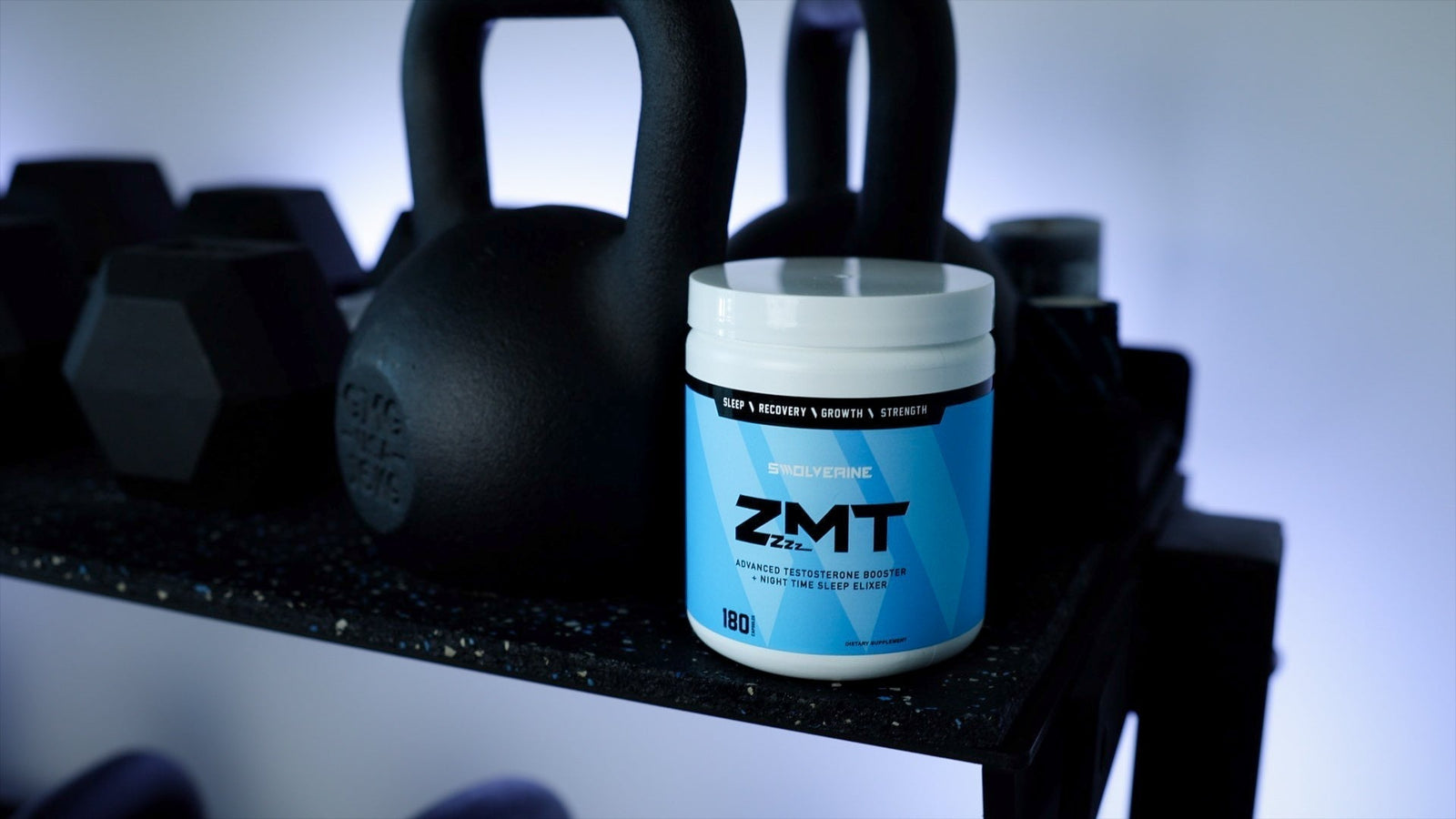Are you confused about the differences between magnesium bisglycinate and glycinate? You're not alone. These two forms of magnesium are often used interchangeably, but they do have distinct characteristics that can impact their effectiveness. In this article, we will unravel the key differences between magnesium bisglycinate and glycinate, and explore the unique benefits each form can offer.
Magnesium bisglycinate is a highly bioavailable form of magnesium that is rapidly absorbed by the body. It is the preferred form for individuals with digestive issues, as it is gentle on the stomach and less likely to cause gastrointestinal discomfort. On the other hand, glycinate is another well-tolerated form of magnesium that provides the added benefit of glycine, an amino acid known for its calming properties.
Understanding the differences between these two forms of magnesium can help you make an informed decision when choosing a supplement. Whether you're looking to improve your sleep, reduce muscle cramps, or support your overall health, this article will provide you with the information you need to choose the right form of magnesium for you. So, let's dive in and discover the unique benefits of magnesium bisglycinate and glycinate.
What Is Magnesium Bisglycinate?
Magnesium bisglycinate is a chelated form of magnesium where the mineral is bound to two molecules of glycine, a non-essential amino acid. This double-glycine bond enhances its bioavailability, making it one of the most efficiently absorbed forms of magnesium available. The chelation process not only improves absorption but also reduces the risk of gastrointestinal side effects commonly experienced with other forms like magnesium oxide or citrate Ranade & Somberg, 2001, Clinical Cardiology.
Because it is gentle on the stomach, magnesium bisglycinate is ideal for individuals with sensitive digestion or conditions like IBS. The presence of glycine—an amino acid with calming and sleep-promoting properties—offers additional benefits, making this form popular among those dealing with stress, anxiety, or insomnia.
Athletes and active individuals also benefit from magnesium bisglycinate for muscle recovery, energy production, and electrolyte balance, which are essential for maintaining performance and reducing soreness.
What Is Magnesium Glycinate?
Magnesium glycinate is another highly absorbable form of magnesium where the mineral is bound to a single glycine molecule. While it may seem similar to bisglycinate, the difference in glycine ratio slightly affects absorption and bioavailability. Despite this, magnesium glycinate still ranks as one of the top choices for effective supplementation.
The glycine component is noteworthy due to its role in supporting neurotransmitter activity, protein synthesis, and calming the nervous system. As such, magnesium glycinate is a preferred option for individuals seeking support for sleep, anxiety, and cognitive health de Baaij et al., 2015, Physiological Reviews.
In terms of application, magnesium glycinate is commonly used to correct deficiency symptoms such as muscle cramps, fatigue, irritability, and poor concentration. It’s available in capsules, tablets, and powders, making it accessible for various supplementation preferences.
The Importance of Magnesium in the Body
Magnesium is a vital mineral involved in over 300 enzymatic reactions in the body, playing an essential role in:
-
Energy metabolism (ATP production)
-
Muscle and nerve function
-
DNA and RNA synthesis
-
Protein synthesis
-
Blood glucose control
-
Blood pressure regulation
Magnesium’s influence extends to physical performance, particularly in athletes, where it supports muscle contraction and reduces cramping. Research also links magnesium to mental health, noting its role in mood regulation through neurotransmitter pathways like serotonin Boyle et al., 2017, PLoS One.
Low magnesium levels have been associated with increased risk for hypertension, cardiovascular disease, and metabolic disorders, making supplementation a strategic choice for long-term wellness Rosanoff et al., 2012, Magnesium Research.
Absorption and Bioavailability of Magnesium Bisglycinate vs. Glycinate
Superior Absorption via Chelation
Magnesium bisglycinate and magnesium glycinate are both chelated forms, meaning the magnesium is bound to glycine, which protects it from binding to inhibitors in the gut and improves absorption. This makes both far more bioavailable than inorganic forms like magnesium oxide or sulfate.
-
Magnesium bisglycinate (2 glycine molecules): Higher absorption potential and reduced GI distress.
-
Magnesium glycinate (1 glycine molecule): Slightly lower absorption but still highly effective and well-tolerated.
According to research, chelated magnesium forms significantly outperform non-chelated options in bioavailability and tolerability Firoz & Graber, 2001, Magnesium Research.
Ideal for Sensitive Stomachs
Unlike other forms of magnesium that can act as laxatives (e.g., citrate, oxide), both bisglycinate and glycinate are non-laxative, making them ideal for people with digestive sensitivity or those requiring higher therapeutic doses.
Health Benefits of Magnesium Bisglycinate
1. Promotes Relaxation and Sleep
The dual-action of magnesium and glycine in magnesium bisglycinate enhances nervous system relaxation, helping to calm the brain and body. This makes it especially beneficial for those with insomnia, stress, or anxiety. Glycine has been shown to improve sleep quality and decrease nighttime body temperature, which aids in deeper, more restorative sleep Yamadera et al., 2007, Sleep and Biological Rhythms.
2. Supports Muscle Recovery
Magnesium bisglycinate helps reduce muscle cramps and post-exercise soreness by supporting electrolyte balance and ATP production. This is especially useful for athletes and individuals engaging in high-intensity training or experiencing frequent muscle fatigue.
3. Enhances Cardiovascular and Bone Health
Adequate magnesium intake is essential for maintaining healthy blood pressure, supporting vascular elasticity, and regulating calcium levels, which helps reduce the risk of osteoporosis and heart disease. Studies show that magnesium supplementation may help lower systolic and diastolic blood pressure in individuals with hypertension Zhang et al., 2016, Hypertension.
Health Benefits of Magnesium Glycinate
1. Reduces Anxiety and Stress
Magnesium glycinate is widely used for its calming effects on the nervous system, helping to lower cortisol levels and reduce symptoms of stress, anxiety, and restlessness. Many individuals report better sleep and emotional balance with regular use of this supplement.
2. Supports Digestive Health
Unlike magnesium oxide or citrate, magnesium glycinate does not draw water into the intestines, making it gentler on the gut. It helps promote bowel regularity and may improve symptoms in individuals with digestive concerns like constipation or bloating.
3. Helps Regulate Blood Sugar
Magnesium plays a vital role in insulin sensitivity and glucose metabolism, and magnesium glycinate may support healthy blood sugar levels, especially in those with prediabetes or insulin resistance. Clinical studies have linked magnesium intake to improved glycemic control in individuals with type 2 diabetes Song et al., 2006, Diabetes Care.
Here’s your final section fully optimized, formatted with Header 1 (H1) and Header 2 (H2) tags for SEO and readability. All original content is preserved and expanded with linked scientific sources, keyword enhancement, and improved clarity for maximum value.
Side Effects and Potential Risks of Magnesium Bisglycinate and Glycinate
Generally Well-Tolerated, but Still Requires Caution
While magnesium bisglycinate and magnesium glycinate are widely regarded as two of the most gentle and well-tolerated forms of magnesium, side effects can still occur—especially when consumed in high doses. Common side effects may include:
-
Mild diarrhea
-
Nausea
-
Stomach cramping
These symptoms are less common with chelated forms like bisglycinate and glycinate compared to inorganic types like magnesium oxide, which is poorly absorbed and more likely to cause GI upset Firoz & Graber, 2001, Magnesium Research.
Medication Interactions to Watch Out For
Magnesium supplements can interfere with the absorption of certain medications, including:
-
Antibiotics (e.g., tetracycline, ciprofloxacin)
-
Osteoporosis treatments (e.g., bisphosphonates)
-
Diuretics and heart medications
These interactions may reduce the efficacy of medications or increase magnesium retention, particularly in those with compromised kidney function. It's crucial for anyone taking prescription medications to consult with a healthcare provider before starting magnesium supplementation National Institutes of Health, 2022, Magnesium Fact Sheet.
Kidney Health Considerations
Individuals with kidney disease or impaired renal function should exercise extra caution. The kidneys play a key role in excreting excess magnesium, and dysfunction can lead to hypermagnesemia (excess magnesium in the blood), which may present symptoms such as:
-
Low blood pressure
-
Irregular heartbeat
-
Muscle weakness
-
In severe cases: cardiac arrest
Routine monitoring of magnesium levels may be necessary for this population to avoid toxicity.
Choosing Between Magnesium Bisglycinate and Glycinate
Bioavailability vs. Simplicity
When deciding between magnesium bisglycinate and magnesium glycinate, the best choice depends on your health goals and individual response.
-
Magnesium Bisglycinate: Features two glycine molecules per magnesium ion, resulting in higher absorption and a gentler impact on the stomach. Ideal for individuals with:
-
Digestive sensitivities
-
Severe magnesium deficiencies
-
Sleep and recovery concerns
-
-
Magnesium Glycinate: Contains one glycine molecule, still highly bioavailable, but slightly less potent than bisglycinate. Best for:
-
General supplementation
-
Mild stress or anxiety relief
-
Everyday wellness and maintenance
-
Personal Tolerance and Experimentation
Everyone’s physiology responds differently. Some may find bisglycinate more effective, while others may prefer glycinate’s calming effects and simpler structure. If tolerated well, trying both forms at different times (e.g., morning vs. night) can help determine which aligns better with your energy needs, sleep patterns, or digestive response.
Consulting with a qualified practitioner can also help personalize your approach based on lab work, medications, and health history.
Recommended Dosage and Usage of Magnesium Bisglycinate and Glycinate
General Dosage Guidelines
The recommended intake of elemental magnesium for most adults ranges from 200–400 mg per day, depending on age, gender, and health status National Institutes of Health, 2022.
-
Magnesium Bisglycinate:
-
1–2 capsules/tablets per day (depending on brand concentration)
-
Powdered forms can also be mixed with water or smoothies
-
-
Magnesium Glycinate:
-
Similar dosing range: 200–400 mg/day
-
Often taken in the evening for sleep and relaxation benefits
-
Always check the elemental magnesium content listed on the label to ensure proper dosing.
When and How to Take It
Timing matters depending on your goal:
-
For sleep and anxiety: Take 30–60 minutes before bed
-
For muscle recovery: Take post-workout or in the evening
-
For general health: Take with food to enhance absorption and reduce any minor stomach upset
Start Low, Go Slow
To reduce potential side effects, begin with a lower dose (100–150 mg) and gradually increase as your body adjusts. This approach helps avoid GI distress and ensures consistent nutrient absorption.
If side effects persist, consider reducing your dose, switching forms, or trying a slow-release formula.
Both Type Of Magnesium Are Effective
In conclusion, understanding the differences between magnesium bisglycinate and glycinate can significantly impact your health and wellness journey. Both forms of magnesium offer unique benefits, with bisglycinate providing enhanced absorption and glycinate offering calming effects due to the presence of glycine. Choosing the right form depends on individual health goals, tolerance, and specific needs, whether it be for muscle recovery, improved sleep quality, or general health support.
It is essential to recognize that magnesium plays a vital role in numerous bodily functions, and ensuring adequate levels is crucial for overall well-being. As you consider incorporating a magnesium supplement into your routine, be mindful of your body's responses and consult with a healthcare professional if needed.
Ultimately, whether you opt for magnesium bisglycinate or glycinate, both can be effective tools in supporting your health. By making an informed decision, you can harness the benefits of these powerful supplements and pave the way for improved energy, relaxation, and overall health.
Looking For The Best Magnesium Glycinate Supplement For Better Sleep and Relaxation?
Swolverine’s ZMT maximizes your body’s ability to stimulate muscle growth, by promoting high-quality sleep, and naturally boosting testosterone levels. With clinically dosed sleep ingredients such as Melatonin, GABA, Theanine, Tryptophan, Valerian Root, Magnesium Glycinate, and powerful adaptogens like Ashwagandha, Zinc, Rhodiola Rosea, Fenugreek, and Tongkat Ali, ZMT is the perfect nighttime elixir for restful recovery and sleep.
SWOLVERINE IS AN ENDURANCE ATHLETE AND ACTIVE LIFESTYLE BRAND. MADE FOR THE ELITE ATHLETE, AND THE STRONG-WILLED OUR PRODUCTS WERE DESIGNED TO FUEL YOUR ATHLETIC PERFORMANCE. WE PERFORM WHEN YOU PERFORM.
We believe that everyone can optimize not only their athletic performance but their human potential. The way we believe we can optimize performance is through transparency, clinically effective doses, and clinically proven ingredients with evidence-based outcomes. We provide the nutrients you need to power your active lifestyle.
Find similar articles:
Supplements






